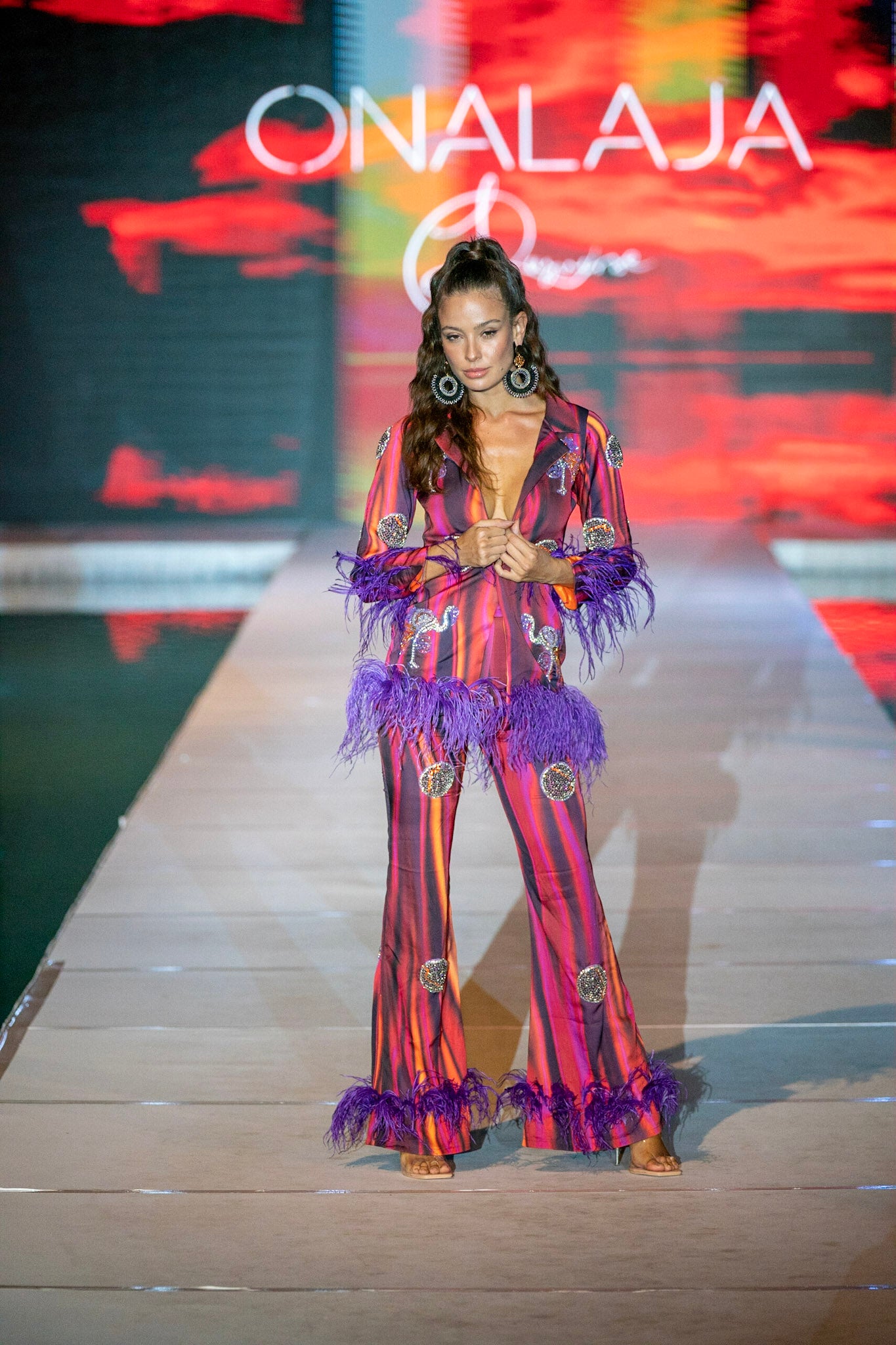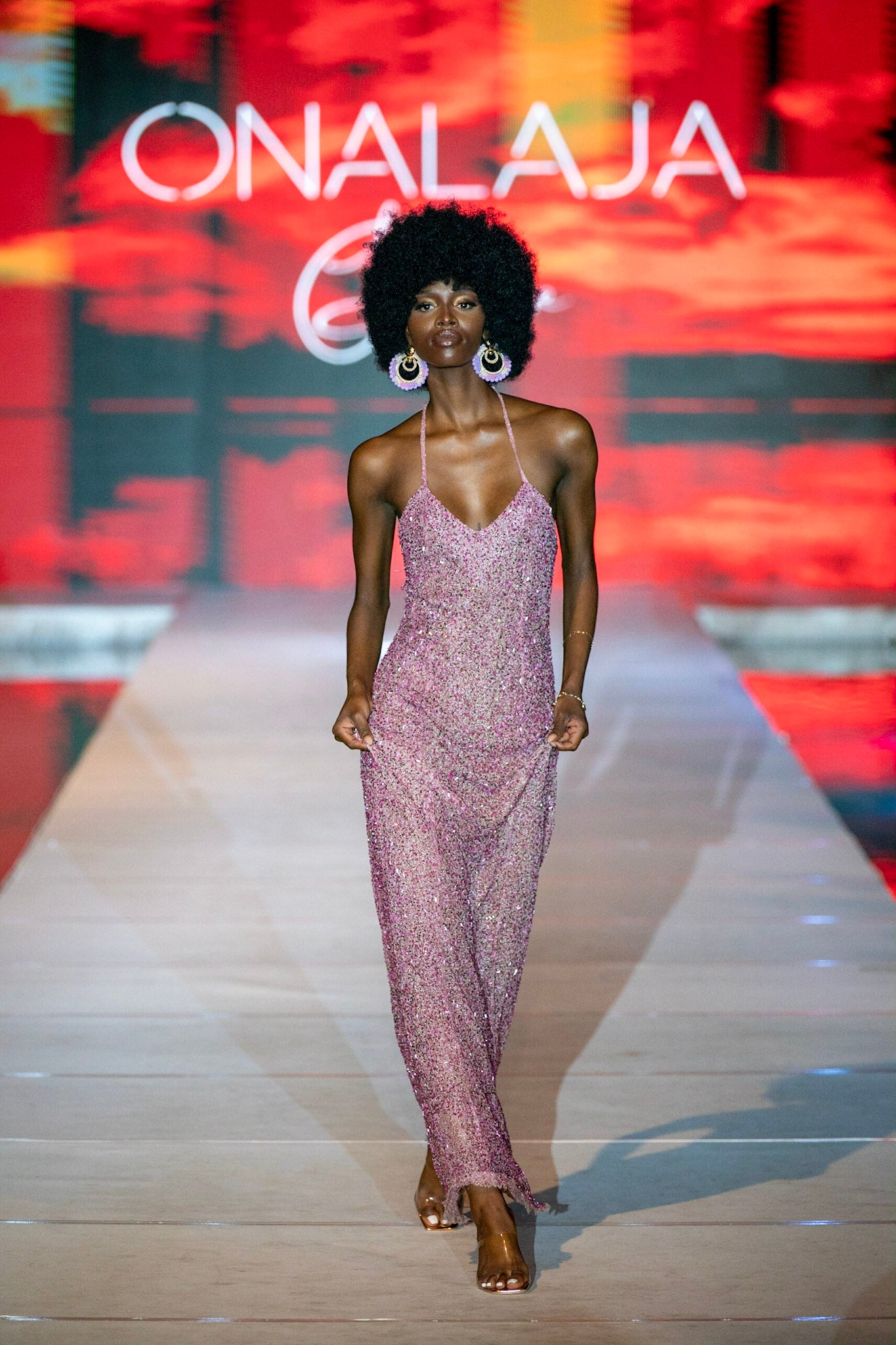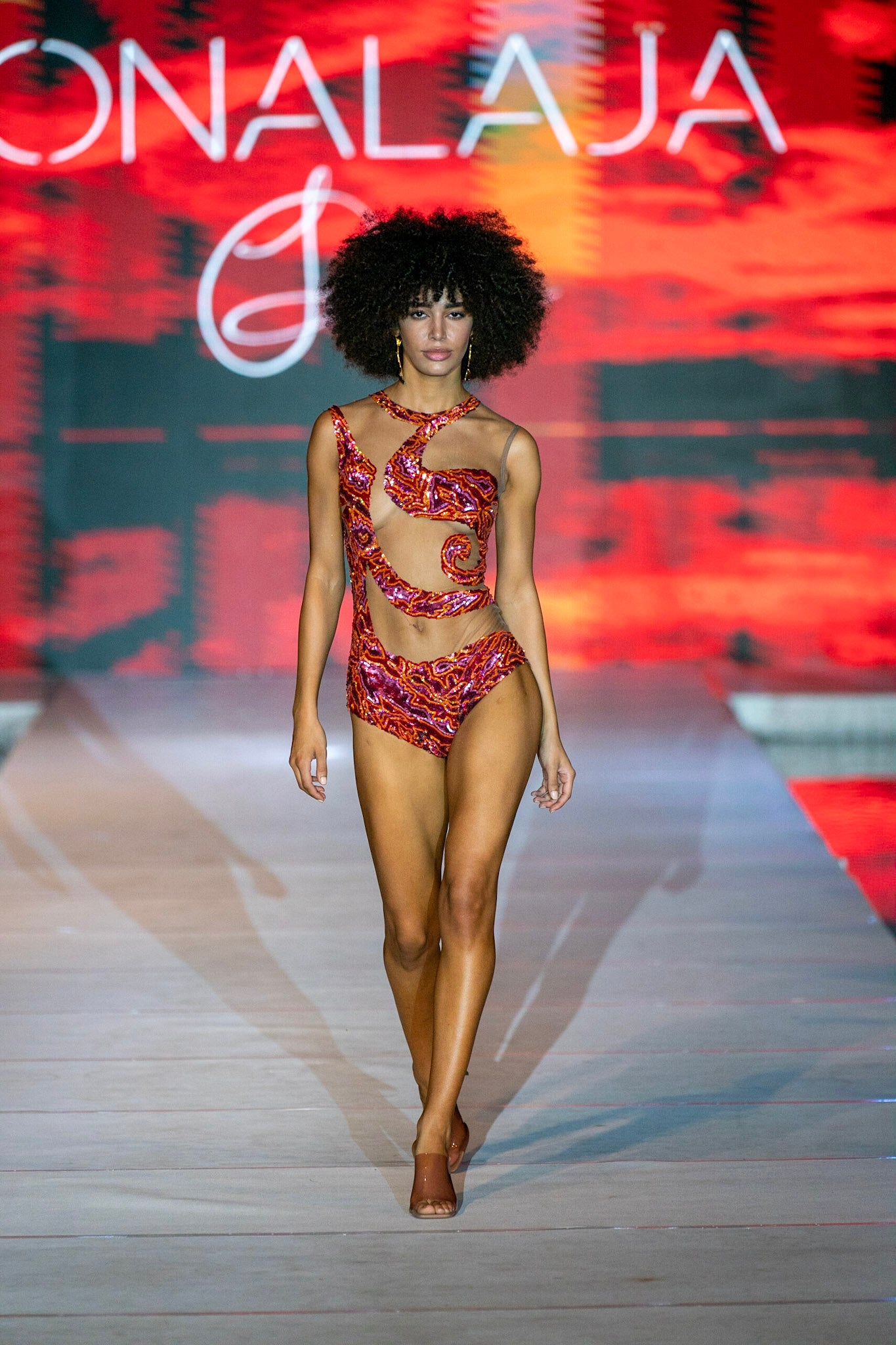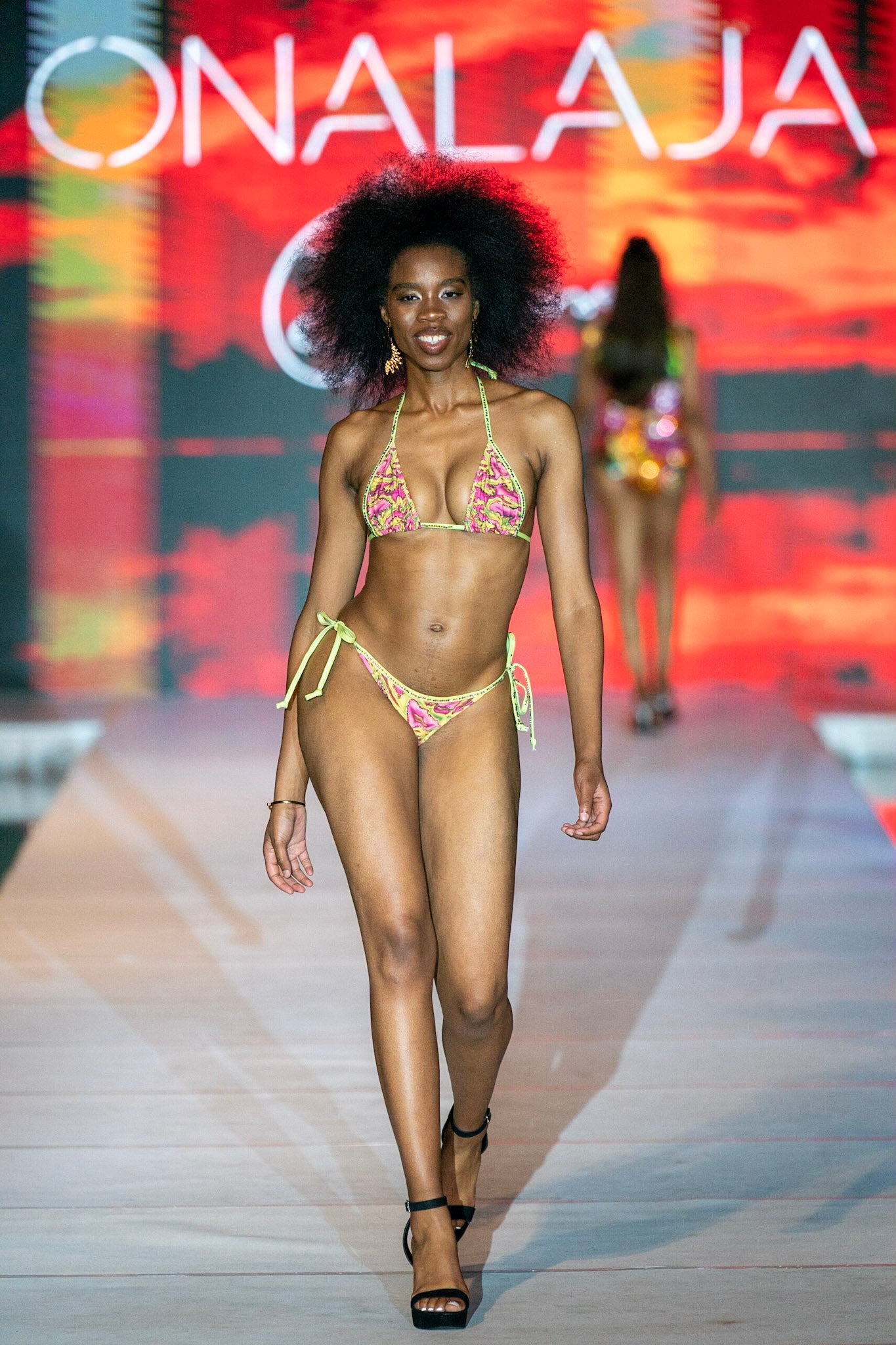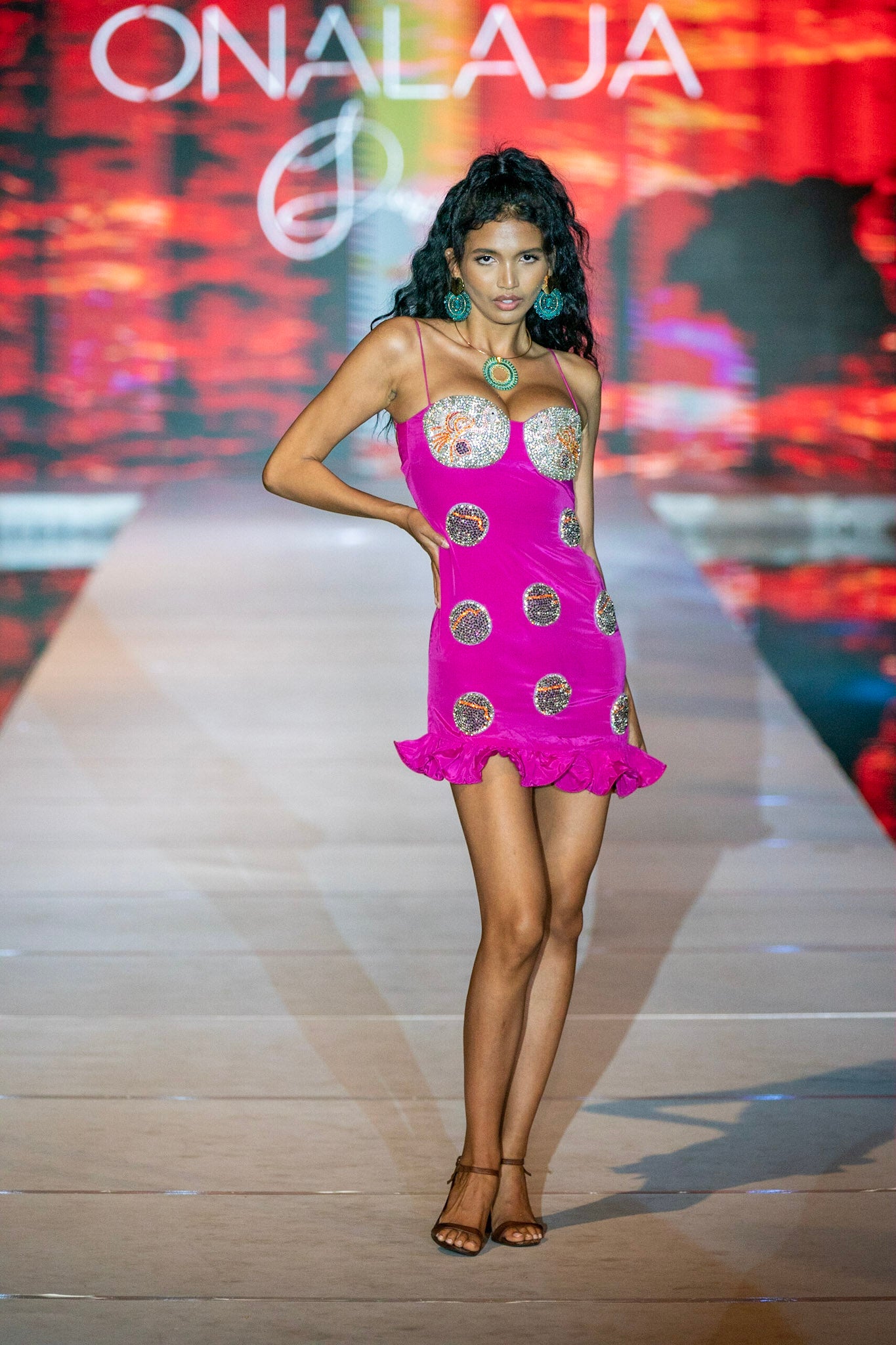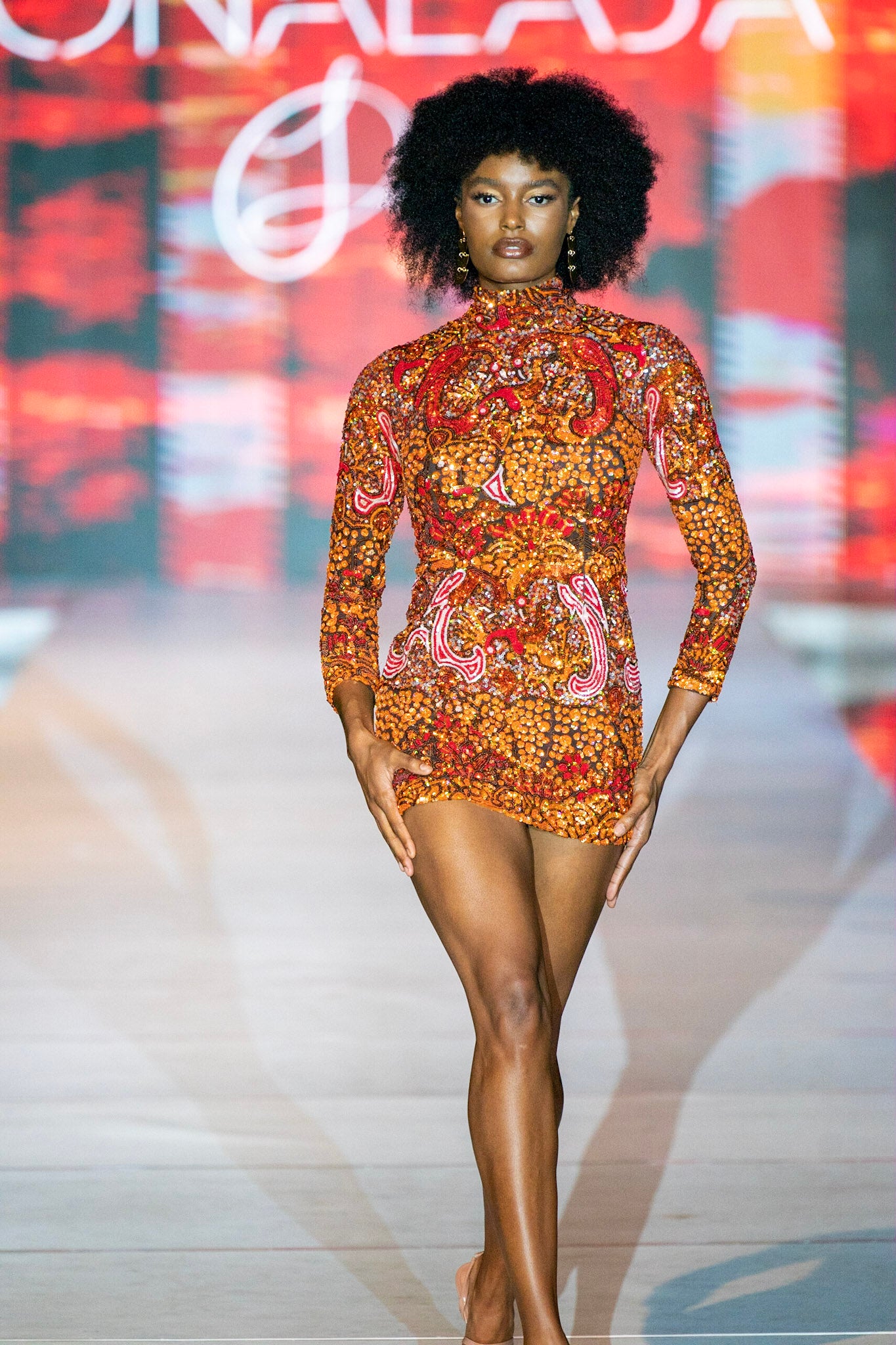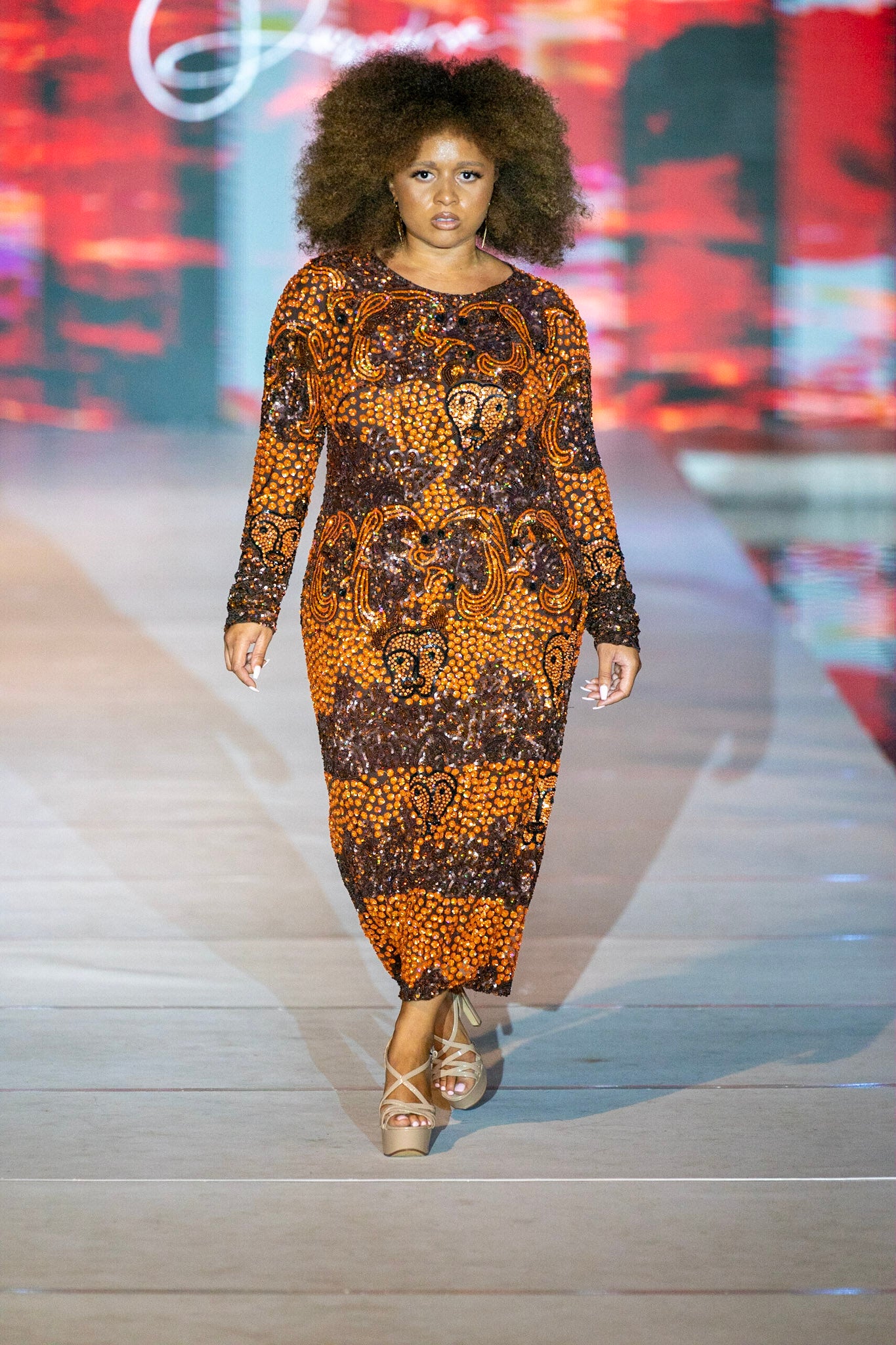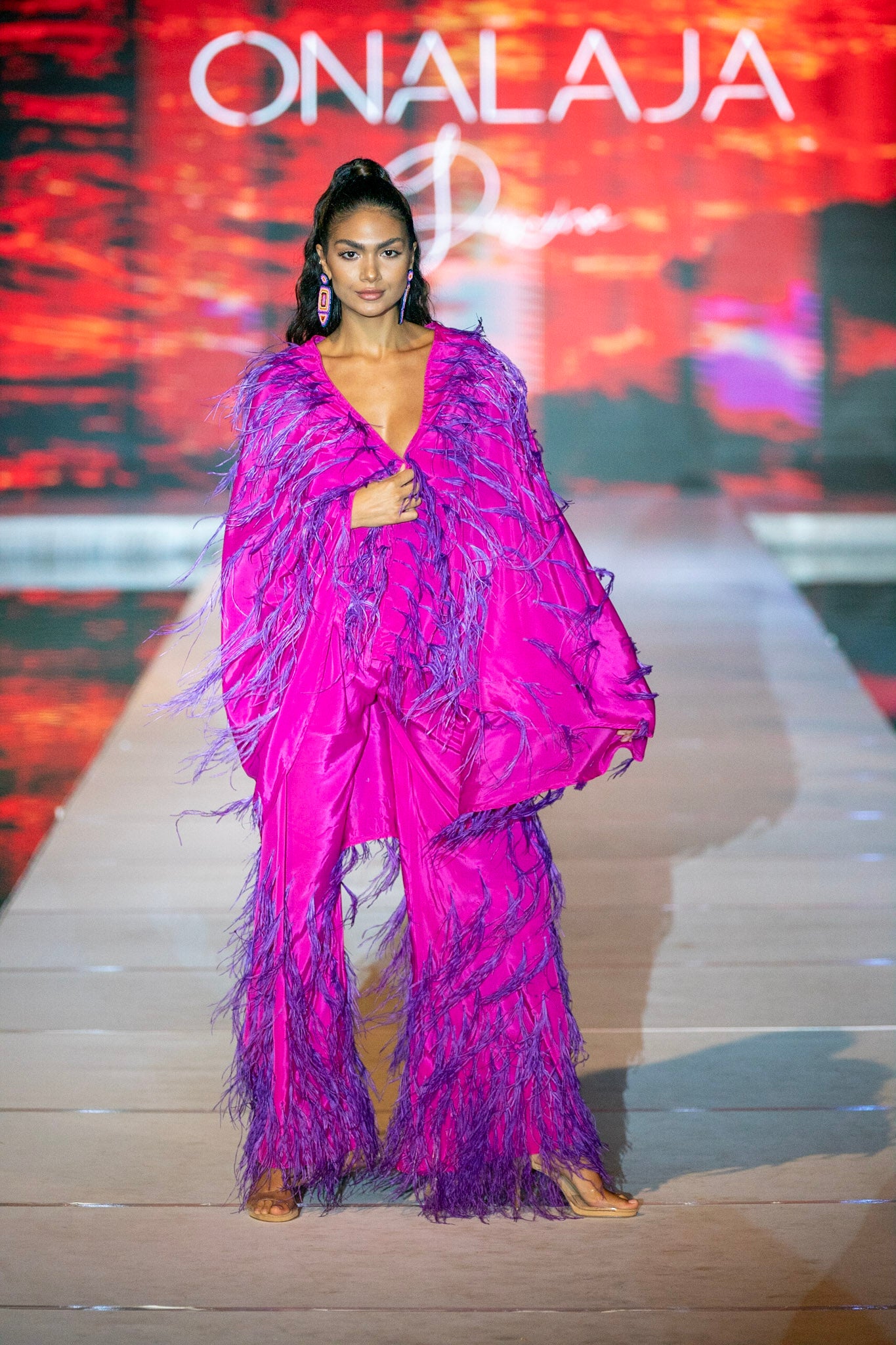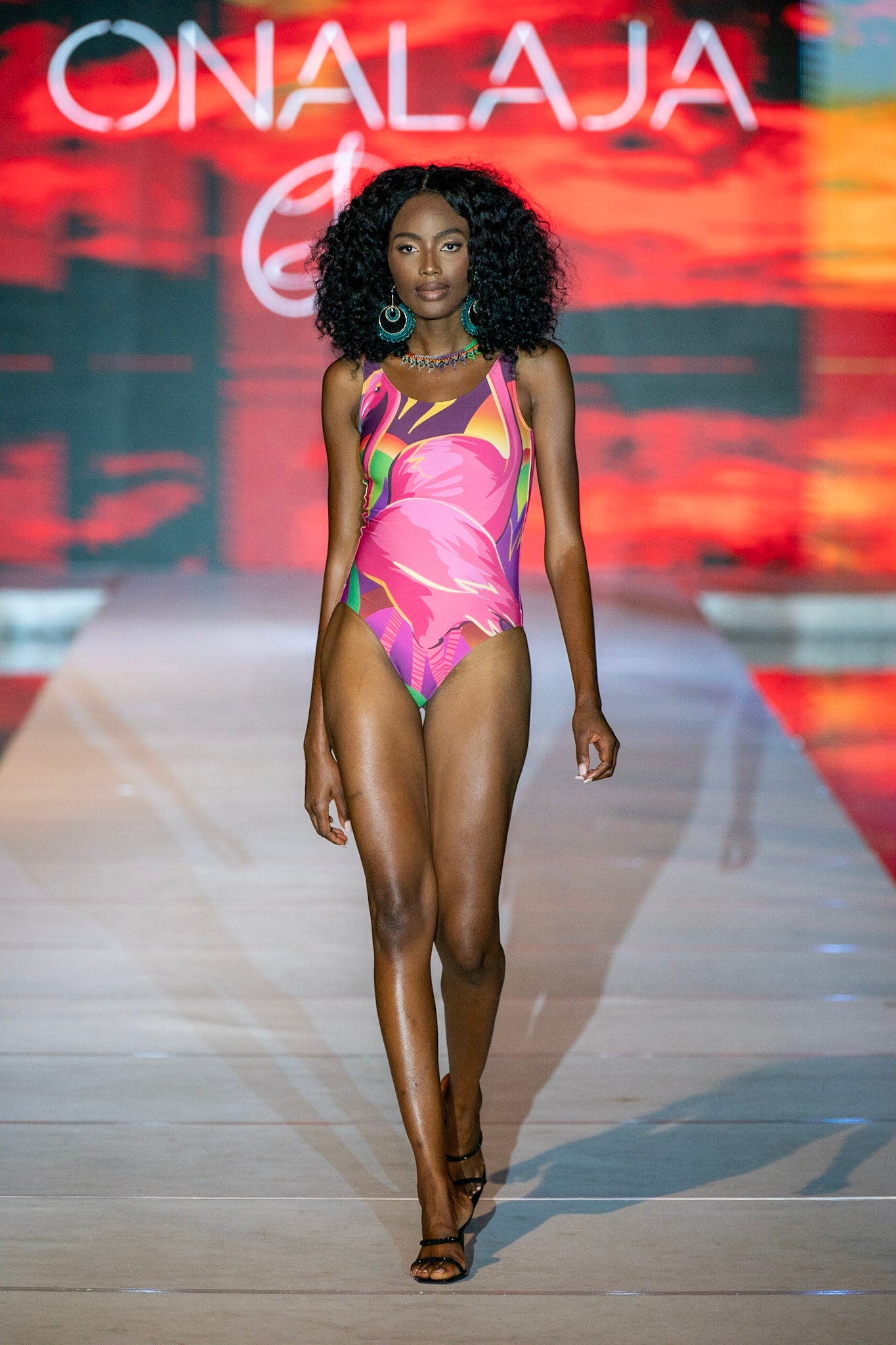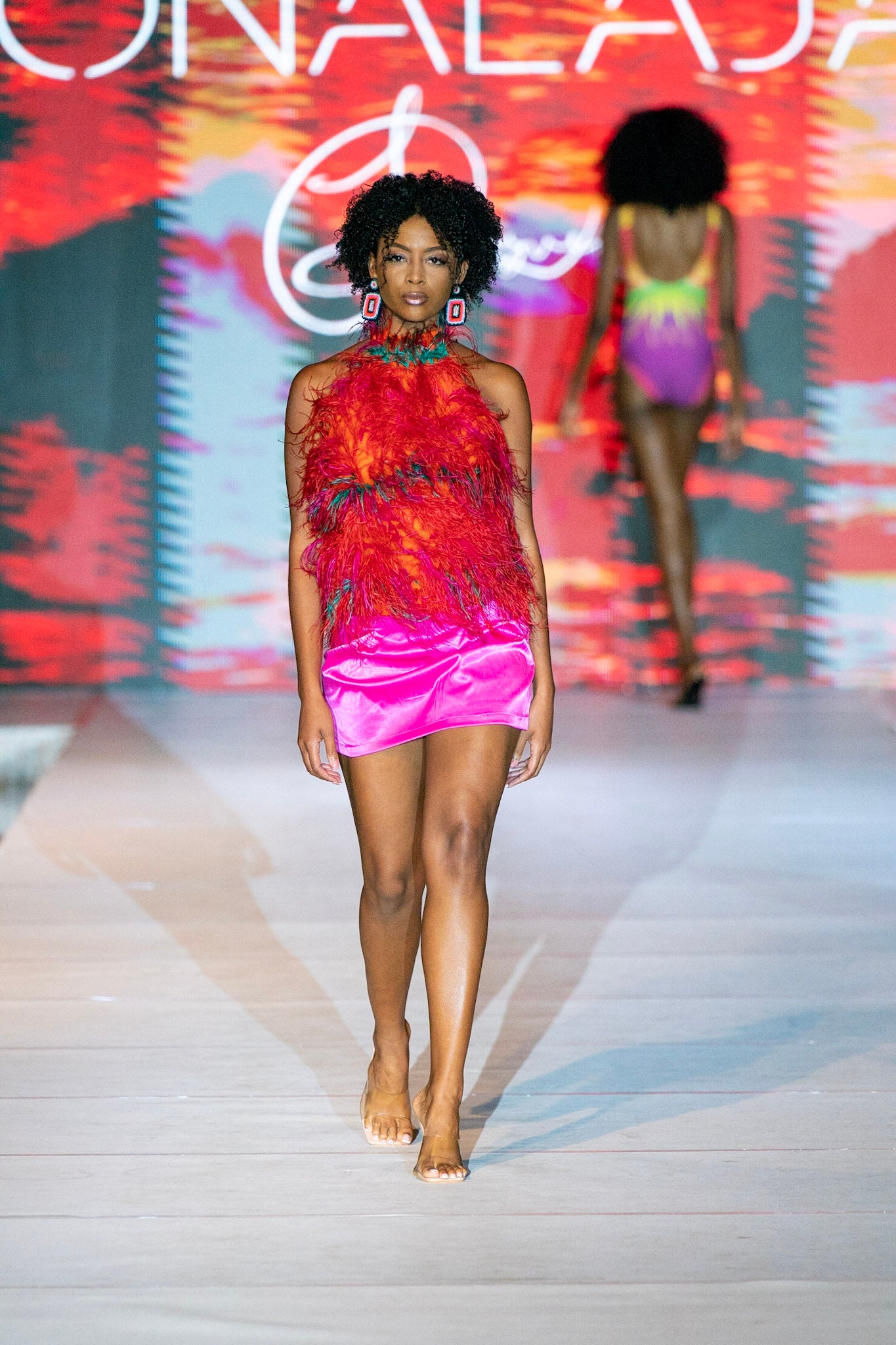
If you’re any bit of a resortwear kind of girl (with or without the resort), Onalaja’s latest collection is one you’ll want to keep on your radar, either to serve as a final sartorial send off for the summer season, or a gem to hold onto in anticipation of tropical holidays, or both. The brand, which primarily focuses on contemporary ready-to-wear recently expanded its offering with a debut swim and resortwear collection, presented in a runway show by Miami Swim Week The Shows. With feathers, sequins and mesh illusions throughout, it undoubtedly makes for one of the most refreshing takes you may have seen on destination-bound fashion in a while.
The brainchild of Nigerian-born designer Kanyinsola Onalaja (who graduated from Istituto Marangoni in London with a BA Fashion Design degree and the title of “best fashion collection of the academic year 2013-1014”), Onalaja’s designs are far from reserved. In fact, the brand’s modern take on Nigerian opulence by way of embellishments, dramatic silhouettes and a generous use of color have already garnered the attention of major retailers such as Moda Operandi and Farfetch, and have hit the red carpets, including a dress appearance at the 2022 BET Awards by way of singer Letoya Luckett.
Onalaja’s newest collection, dubbed Flamingo Paradise, which takes an artful approach to depicting nature through fashion by way of crystal-encrusted mini dresses, feather-trimmed pants sets, and of course one and two-piece swimwear options, comes just in time for a fashion collective ready to embrace maximalism – and these just may be among the most fun-loving styles you’ll add to your wardrobe yet. It’s set to hit Onalaja’s website on a pre-order basis by the end of the month, but in the meantime, ESSENCE chats with the designer behind the brand about her source of inspiration for designs, philosophy on designing and more. Plus, see the pieces on the runway, ahead.
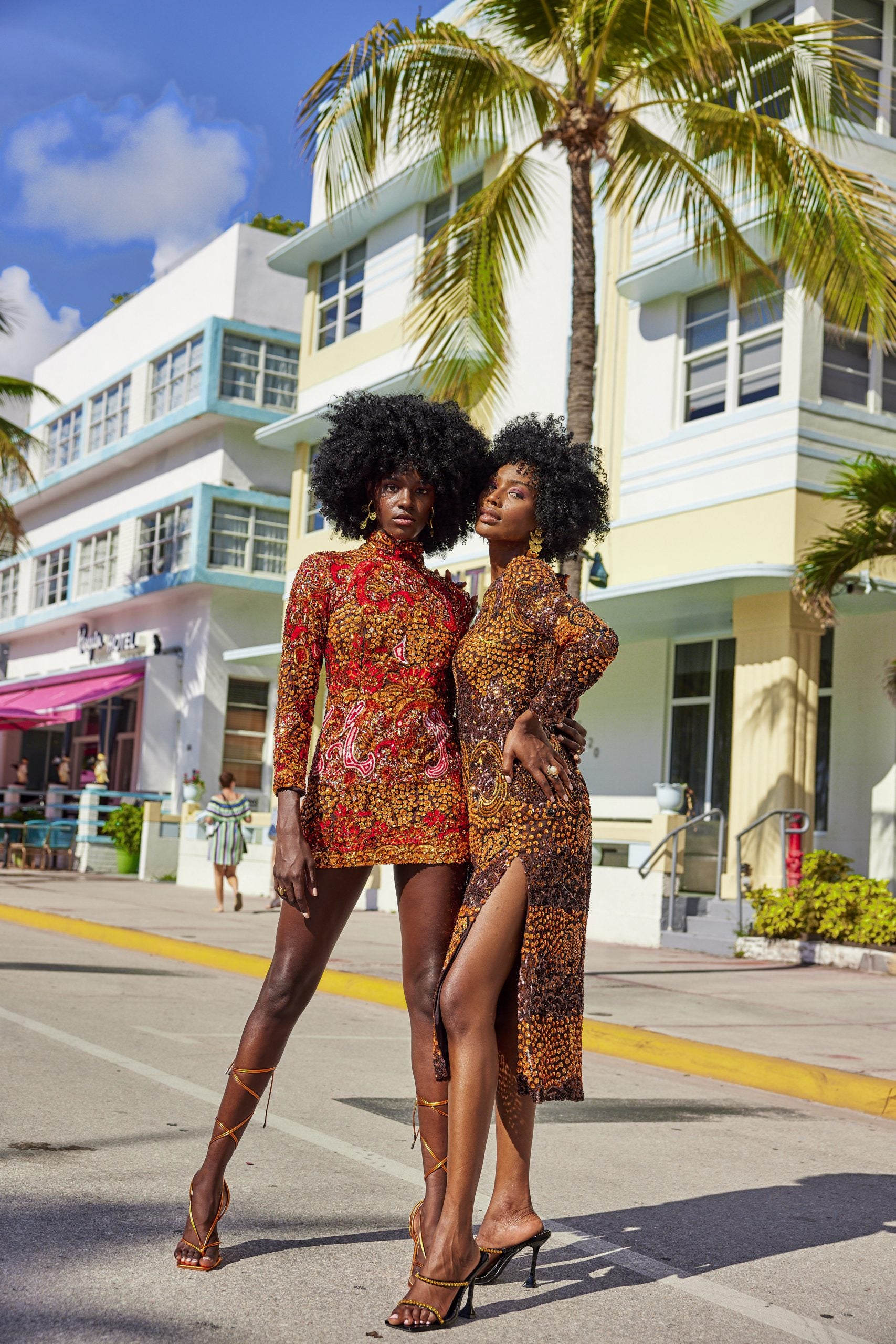
CREDIT: STEPHON WILLIAMS
Note: This interview has been edited for clarity.
ESSENCE: What first piqued your interest in fashion? How did your brand eventually come to be?
KANYINSOLA ONALAJA: Growing up, my mom’s workspace was always filled with embellished fabrics, paints, dyes, metallic threads and hand-painted silk fabrics. As a child, I sat and watched her manipulate, paint and embroider all sorts of textiles, and it was like Aladdin’s cave filled with vibrant, shimmering treasures. I saw people wear and appreciate her creations, and it inspired me. In school, painting became my favorite form of artistic expression, but I found the two dimensional aspects limited my creativity. Consequently, I began exploring ways to make my designs come to life. The birth of the ONALAJA brand began when I enrolled at Istituto Marangoni, and what I learned there provided the solid foundation of what Onalaja is now and will become.
Would you say Onalaja is a take on Nigerian dress? If so, how do you go about executing this?
ONALAJA: Nigerian fashion is known for its vibrancy, boldness, playful colors, fabrics and embellishments. In that sense, I do think that Onalaja has its own special and contemporary take on these elements. We execute this using themes to manipulate textures, color clashes and embellishment through sequins and beads. It’s all about building layers and depth within each garment. Then, we interweave these elements with current silhouettes and styles.
Can you tell me about the inspiration behind the collection you showed at Miami Swim Week?
ONALAJA: We showed our Flamingo Paradise collection during Miami Swim Week, which was inspired by the characteristics of the flamingo bird. From its bright, fire pink feathers, to its elongated body and vibrant colors, [its features] are irresistibly appealing. I think the range of the flamingo’s color palette speaks volumes, and likewise, the range of colors used in Onalaja fabrics makes a bold statement. We also used long, playful pajama sets to beautifully capture some of their other traits, such as their slender legs, long, graceful necks, large wings, and short tails. Each garment truly embodies the symbolism and beauty behind the flamingo. These birds are seen in parts of Africa, and they symbolize femininity, strength and innocence — similar to the African woman. Resort[wear], for us, truly is about grand statements in simple silhouettes, textual layered swimwear, voluminous feathers, layered sequin and strong, whimsical color clashes.
How have your designs evolved since your last collection?
ONALAJA: My designs have definitely evolved since my last collection. I was very worried back then about my use of embellishment and how it would look overall. The result was more of a sparse beading design on some garments. Now, ONALAJA is able to combine the right amount of beads and sequins to create an all over design that remains elegant.
The swimwear you showed is extremely elevated and fashion forward. What is your philosophy on swimwear?
ONALAJA: Though designing swimwear is new to Onalaja, our philosophy on swimwear does not differ from our brand ethos [which prioritizes] intricate craftsmanship, fabric manipulation, quality, heritage and often blending opposing elements to create innovative pieces with impeccable fit for all shapes and sizing. The Onalaja woman is all about details. She’s a glam butterfly, so why not give her a swim that follows the DNA of the brand? More is always more.
You also recently dressed Letoya Luckett for the B.E.T. Awards. What was that experience like?
ONALAJA: It was a phenomenal experience. She wore the Zusi dress, and it was actually purchased through the Merge-co store in Atlanta. The response to it has been extremely ncredible, and I’m elated to see not only my designs on the red carpet, but an African brand being represented on an International platform. [That Letoya also loves] my dress is just the icing on top of the cake.
What have you found is most important to you as a designer?
ONALAJA: As a designer, my heritage and representing it is something extremely important to me. I want to continue to recreate new concepts and visuals of Africa that challenge stereotypical narratives. An underlying concept within my collections always remains “Our Heritage Re-Imagined — The Africa We Don’t See.” It’s important to continue to push boundaries through my craft, and present a brand that can be synonymous with wearable art and complimentary to the delicateness of the female form.
